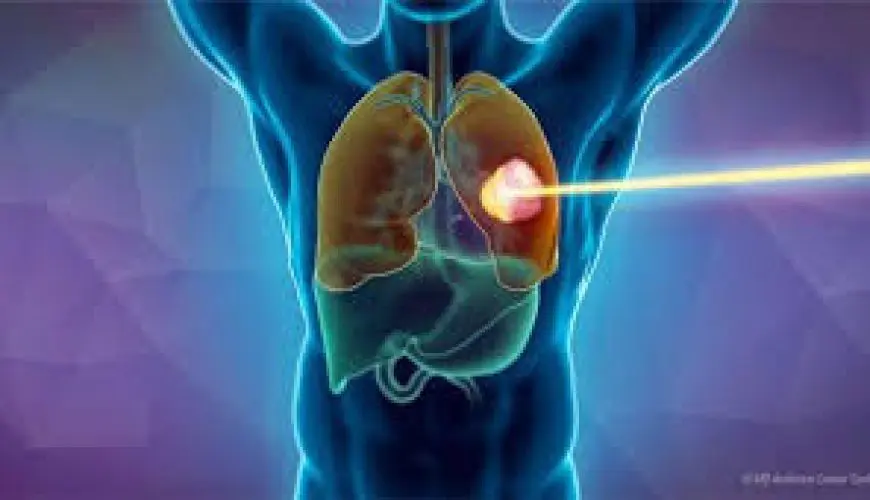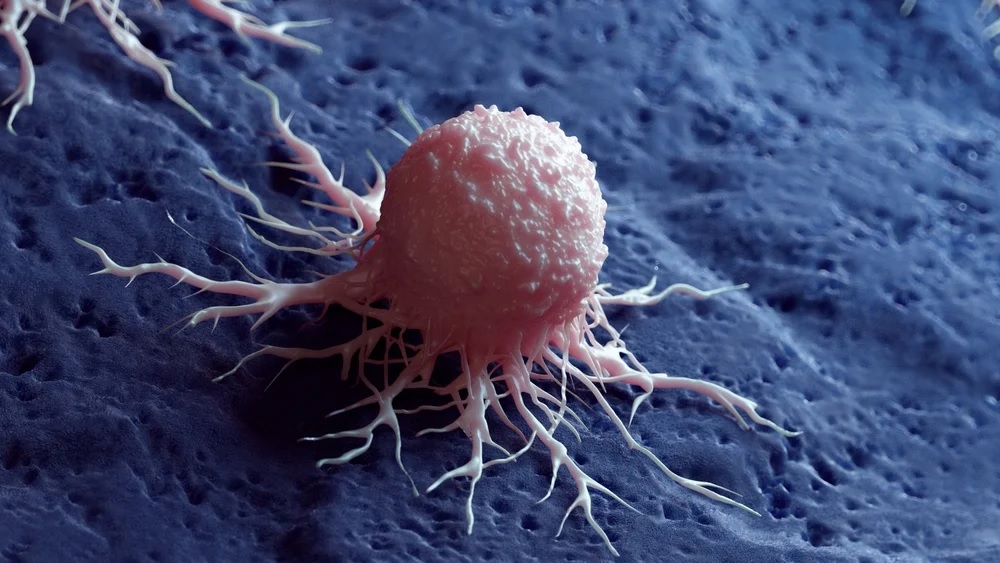Lung Cancer Therapeutics Market: Overview, Dynamics, Trends, Challenges, Opportunities, and Regional Analysis
Explore the global Lung Cancer Therapeutics Market trends, growth drivers, key players, innovations, and market forecast for 2024-2035. Discover the latest advancements in lung cancer treatment, targeted therapies, and immunotherapy.

Overview of Lung Cancer Therapeutics Market
The Global Lung Cancer Therapeutics Market is valued at USD 32.5 Billion in 2024 and is projected to reach a value of USD 78.9 Billion by 2035 at a CAGR (Compound Annual Growth Rate) of 8.3% between 2025 and 2035, the Lung Cancer Therapeutics Market is witnessing significant growth due to the rising prevalence of lung cancer worldwide. Lung cancer remains one of the most common and deadliest cancers, primarily driven by smoking, environmental pollutants, and genetic factors. The market is expanding due to advancements in targeted therapy, immunotherapy, and personalized medicine. The increasing adoption of biomarker-based treatments, growing research in oncology, and favorable regulatory approvals are further propelling the market. Additionally, rising awareness about early detection and the increasing investments in healthcare infrastructure are creating a strong foundation for future market expansion.
Request Sample Copy of Lung Cancer Therapeutics Market Report: (Including Full TOC, List of Tables & Figures, Chart @ https://www.vantagemarketresearch.com/lung-cancer-therapeutics-market-2568/request-sample

Dynamics of the Lung Cancer Therapeutics Market
The Lung Cancer Therapeutics Market is driven by several factors, including the increasing incidence of lung cancer, advancements in treatment methodologies, and the growing adoption of precision medicine. The demand for novel and effective treatment options such as targeted therapies and immunotherapy has surged as traditional chemotherapy poses several side effects. Pharmaceutical companies are investing heavily in R&D to develop innovative lung cancer drugs, and regulatory agencies are accelerating drug approval processes to meet the urgent medical needs.
Moreover, collaborations between biotech firms and pharmaceutical companies have led to the introduction of next-generation lung cancer treatments. Government initiatives supporting lung cancer awareness, screening programs, and funding for clinical research have further influenced market growth. However, high treatment costs, accessibility issues, and the complex nature of lung cancer mutations pose challenges. Despite these obstacles, increasing technological advancements and a better understanding of cancer genomics provide significant market opportunities.
Competitive Landscape
The Lung Cancer Therapeutics market is highly competitive, with key players focusing on technological innovations, strategic collaborations, and mergers & acquisitions. Leading companies in the market include:
- AstraZeneca PLC (UK)
- Boehringer Ingelheim International GmbH (Germany)
- Bristol Myers Squibb Company (U.S.)
- Eli Lilly and Company (U.S.)
- F. Hoffmann-La Roche Ltd. (Switzerland)
- Merck & Co. Inc. (U.S.)
- Pfizer Inc. (U.S.)
- Allergan Inc. (Ireland)
- Teva Pharmaceutical Industries Ltd. (Israel)
- Abbvie Inc. (U.S.)
- Johnson & Johnson (U.S.)
- Amgen Inc. (U.S.)
- Novartis AG (Switzerland)
Top Trends in the Lung Cancer Therapeutics Market
The Lung Cancer Therapeutics Market is experiencing several key trends that are shaping its future growth. One of the major trends is the rising adoption of immunotherapy. Immune checkpoint inhibitors like PD-1/PD-L1 inhibitors are revolutionizing lung cancer treatment by enhancing the body’s immune response against cancer cells. This shift towards immunotherapy is leading to better patient outcomes and longer survival rates.
Another emerging trend is the rise of targeted therapies. Drugs targeting specific mutations, such as EGFR, ALK, and KRAS inhibitors, are gaining traction due to their high efficacy and lower side effects compared to conventional chemotherapy. Additionally, advancements in liquid biopsy technologies are improving early detection and treatment monitoring, allowing for more personalized and effective treatment strategies.
The integration of artificial intelligence (AI) and big data analytics in oncology is also transforming the market by enabling predictive analytics, treatment optimization, and improved clinical decision-making. Furthermore, biosimilars and combination therapies are expected to drive market growth by providing cost-effective and more effective treatment options for patients with advanced lung cancer.
Top Report Findings
- The global lung cancer therapeutics market is expected to witness a substantial growth rate due to increasing incidence rates and innovative treatment approaches.
- Immunotherapy and targeted therapy are the fastest-growing segments, offering more precise and effective treatment options.
- North America dominates the market due to high healthcare expenditure, advanced research facilities, and a strong presence of key pharmaceutical players.
- Personalized medicine and biomarker-driven therapies are transforming lung cancer treatment approaches.
- Liquid biopsies and AI-driven diagnostic techniques are improving early detection and treatment personalization.
- Collaborations between biotech firms and pharmaceutical companies are driving R&D efforts in lung cancer therapeutics.
- Despite rapid advancements, high treatment costs and access limitations remain key challenges.
- The increasing trend of biosimilars is expected to make lung cancer treatment more affordable in the coming years.
Market Segmentation
The Lung Cancer Therapeutics market is segmented based on:
By Therapy
- Radiation Therapy
- Targeted Therapy
- Immunotherapy
- Chemotherapy
- Others
By Lung Cancer Type
- Small Cell Lung Cancer
- Non-small Cell Lung Cancer
- Lung Carcinoid Tumor
By Distribution Channel
- Hospital Pharmacies
- Retail Pharmacies
- Online Pharmacies
By Type of Molecule
- Small molecules
- Biologics
By Drug Class
- Alkylating Agents
- Antimetabolites
- EGFR Inhibitors
- Mitotic Inhibitors
- Multikinase Inhibitors
- Others
By Region
- North America
- Europe
- Asia Pacific
- Latin America
- The Middle-East and Africa
Direct Purchase this Lung Cancer Therapeutics Market Research Report @ https://www.vantagemarketresearch.com/buy-now/lung-cancer-therapeutics-market-2568/0
Challenges in the Lung Cancer Therapeutics Market
One of the significant challenges in the Lung Cancer Therapeutics Market is the high cost of treatment. Advanced therapies such as immunotherapy and targeted therapy come with a hefty price tag, making them inaccessible for many patients, especially in developing regions. Additionally, the complexity of lung cancer mutations makes treatment selection difficult, requiring continuous research and innovation.
Another challenge is drug resistance. Some patients develop resistance to targeted therapies, making it difficult to achieve long-term remission. Moreover, limited awareness and late diagnosis continue to hinder successful treatment outcomes, as many cases are detected in advanced stages when treatment options become limited. Furthermore, stringent regulatory requirements for drug approvals slow down the introduction of new therapies, delaying potential life-saving treatments for patients.
Opportunities in the Lung Cancer Therapeutics Market
Despite the challenges, there are numerous opportunities in the Lung Cancer Therapeutics Market. The increasing adoption of biomarker-based treatments allows for more precise and effective therapeutic interventions, improving patient outcomes. The expansion of clinical trials focusing on next-generation cancer treatments presents significant growth prospects for pharmaceutical companies.
Another opportunity lies in the advancements in artificial intelligence (AI) and machine learning, which are streamlining lung cancer detection, diagnosis, and treatment personalization. The growing availability of biosimilars is expected to make treatment more affordable, thus expanding patient access to effective lung cancer therapeutics. Moreover, the increasing focus on early detection through advanced diagnostic tools, such as liquid biopsy and AI-driven imaging, presents a major market growth opportunity.
Key Questions Answered in the Lung Cancer Therapeutics Market Report
- What are the latest advancements in lung cancer therapeutics?
- What is the market size and growth forecast for the lung cancer therapeutics market?
- How are immunotherapy and targeted therapy shaping lung cancer treatment?
- What are the major challenges affecting market growth?
- Which pharmaceutical companies are leading the lung cancer therapeutics market?
- How is artificial intelligence influencing lung cancer diagnosis and treatment?
- What are the key regional trends impacting the North American lung cancer therapeutics market?
- What role do biosimilars play in making lung cancer treatment more affordable?
For Lung Cancer Therapeutics Market Report and updates detailed View Full Report: https://www.vantagemarketresearch.com/industry-report/lung-cancer-therapeutics-market-2568
Regional Analysis: Focus on North America
North America is the dominant region in the Lung Cancer Therapeutics Market, primarily due to the presence of a well-established healthcare infrastructure, high healthcare spending, and strong support for cancer research. The United States accounts for the largest market share, driven by a high incidence of lung cancer, early adoption of advanced treatments, and favorable reimbursement policies.
The growing investments in biotechnology and pharmaceutical research are propelling the development of innovative lung cancer treatments in the region. Additionally, the increasing availability of clinical trials for novel therapies provides patients with access to cutting-edge treatment options. Regulatory agencies like the FDA (Food and Drug Administration) play a critical role in fast-tracking drug approvals, ensuring that new therapies reach patients sooner.
Moreover, the adoption of artificial intelligence and precision medicine in North America is transforming the landscape of lung cancer treatment. AI-driven diagnostics and personalized medicine approaches are enhancing treatment effectiveness and survival rates. However, despite the advancements, high treatment costs and disparities in healthcare access remain major concerns, necessitating continuous efforts to make lung cancer therapeutics more affordable and widely available in the region.
Conclusion
The Lung Cancer Therapeutics Market is undergoing a major transformation with the advent of innovative treatments such as immunotherapy, targeted therapy, and AI-driven diagnostics. While challenges like high costs and drug resistance persist, growing research, personalized medicine, and increased investment in biotechnology present numerous opportunities for market expansion. With North America leading the way in cutting-edge lung cancer research and treatment, the future of lung cancer therapeutics looks promising, offering hope for better patient outcomes worldwide.












![Dialysis Market Size, Share, Trends | Growth Analysis [2035]](https://www.marketbusinessinsights.com/uploads/images/202502/image_140x98_67b34ae16c42c.webp)




